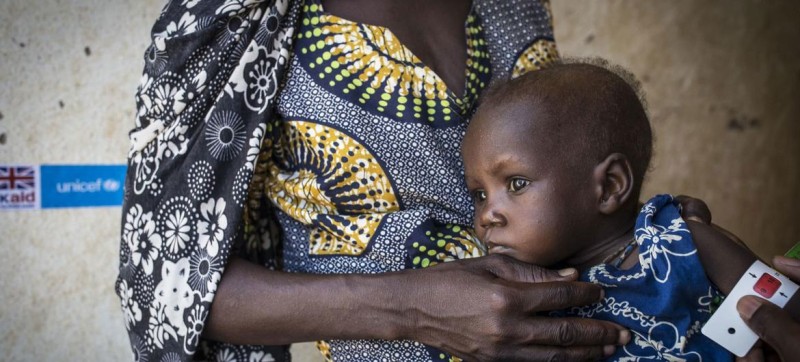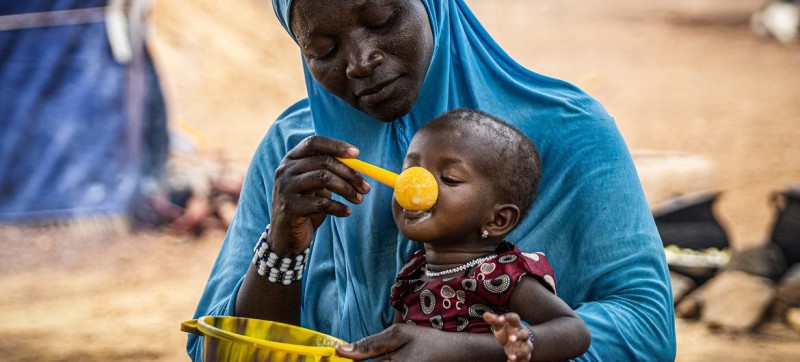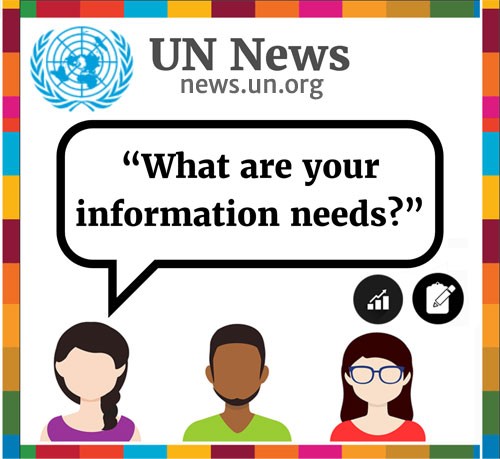
© UNICEF/Harandane Dicko Over 15% of the children suffer from acute malnutrition in Timbuktu, Mali.
The agency’s emergency food and nutrition assistance operation in the Sahel began in June, focussing on refugees, newly displaced people, malnourished children under five, pregnant women and breastfeeding women and girls.

© WFP/Cheick Omar Bandaogo A mother gives her 10-month-old daughter porridge in Burkina Faso in the Sahel region, where WFP is providing assistance to prevent malnutrition.
Record-breaking famine
Food insecurity overall has reached a 10-year high in West and Central Africa, affecting 47.2 million people during the June-August lean season.
Mali and Chad will be hit the hardest said WFP, with 800,000 people at risk of resorting to desperate measures to cope, including engaging in survival sex, early marriage, or joining armed groups.
“We’re in a tragic situation. During this year’s lean season, millions of families will lack sufficient food reserves to sustain them until the next harvests in September and many will receive little to no assistance to tide them through the gruelling months ahead”, said Margot Vandervelden, Regional Director ad interim, for Western Africa.
“We must take immediate action to prevent a massive slide into catastrophic hunger”.
Tweet URL
Building resilience
Conflict remains a key driver of hunger in the region, leading to forced population displacements that have emptied out entire villages and limit communities’ access to land for farming.
WFP’s lean season response aims to provide life-saving food and nutrition assistance to families facing acute hunger at a time when food stocks dwindle.
However, proactive investments in prevention and smart longer-term solutions can significantly reduce reliance on such emergency actions.
These solutions include resilience-building activities, social protection programmes and future innovations or investments, such as climate insurance pay-outs.
Life-saving assistance
WFP’s integrated resilience programme in the Sahel focuses on collective watershed planning, land recovery and rehabilitation, and support for smallholder farmers, linking to support such as school meals and other nutrition services.
In Niger, for example, 80 percent of villages that received WFP resilience support did not require humanitarian assistance in 2022, unlike other villages outside the scheme, in the same areas.
This success meant that about half a million people did not need humanitarian food aid thanks to WFP’s long-term investments in resilience strengthening.
Expanding these activities will be crucial in preventing emergency needs from escalating. The programme also contributes to strengthening national capacity to anticipate and respond to climatic and other shocks that are drivers of humanitarian need.

2023 UN News User Survey
Thank you in advance for agreeing to participate in our survey so we can improve and tailor our products to your needs. The survey will take no more than 4 minutes to complete.

